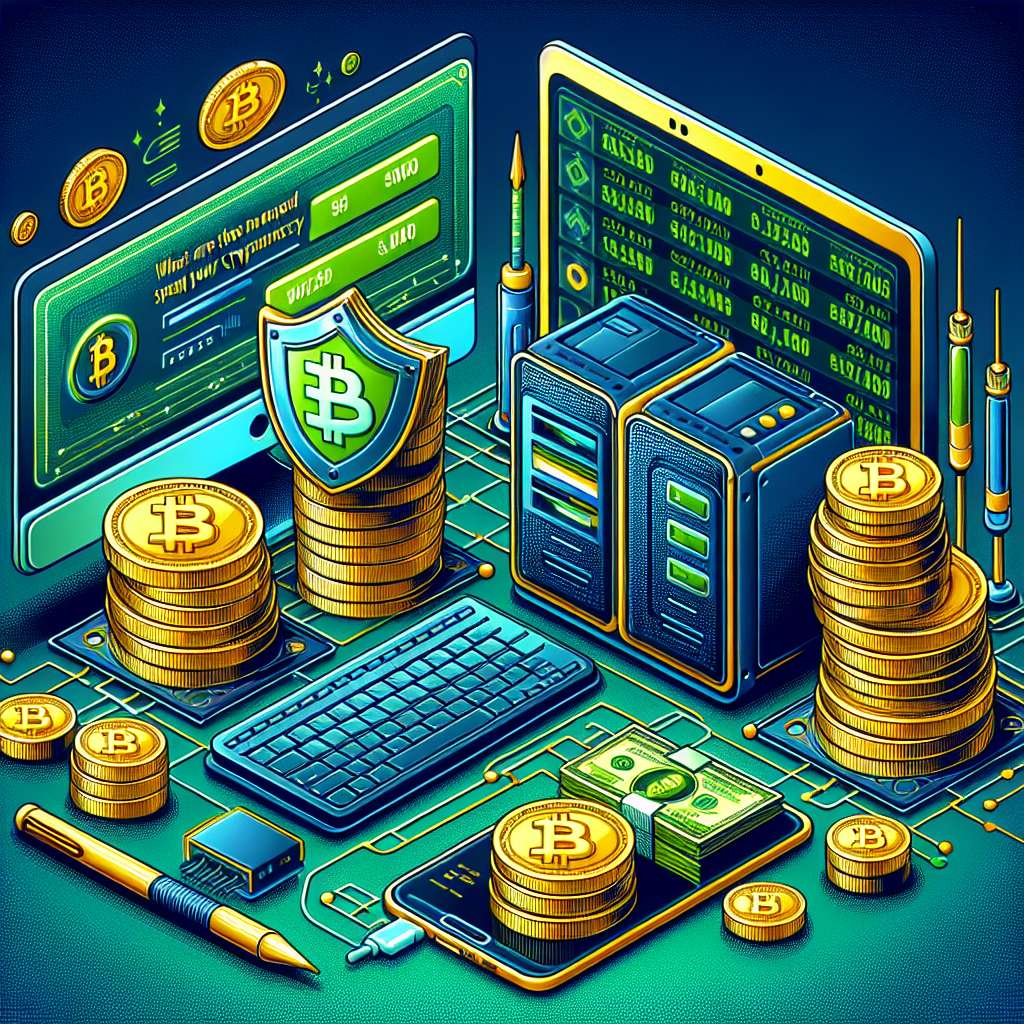What are the most secure ways to send and receive digital currencies?
In the world of digital currencies, security is of utmost importance. What are the best practices and methods for securely sending and receiving digital currencies? How can individuals protect their funds and transactions from potential threats and ensure the safety of their assets?

3 answers
- When it comes to sending and receiving digital currencies, there are several secure methods that individuals can employ. One of the most recommended practices is to use hardware wallets, such as Ledger or Trezor, which provide an extra layer of security by keeping the private keys offline. These wallets are designed to protect against hacking attempts and ensure that your funds remain safe. Additionally, it is crucial to double-check the wallet addresses before initiating any transactions to avoid falling victim to phishing attacks. By verifying the address with multiple trusted sources, you can minimize the risk of sending funds to the wrong recipient. Lastly, enabling two-factor authentication (2FA) on your exchange accounts and wallets can add an extra layer of security by requiring a second verification step, such as a code sent to your mobile device, before accessing your funds. By following these practices, you can significantly enhance the security of your digital currency transactions.
 Dec 17, 2021 · 3 years ago
Dec 17, 2021 · 3 years ago - Alright, let's talk about the most secure ways to send and receive digital currencies. First and foremost, it's essential to choose a reputable and secure wallet or exchange platform. Look for platforms that have a strong track record of security and employ measures such as cold storage and multi-signature wallets. Cold storage means that the private keys are kept offline, away from potential hackers. Multi-signature wallets require multiple signatures to authorize a transaction, adding an extra layer of security. Another important aspect is to keep your software and devices up to date. Regularly update your wallet software and operating system to ensure that you have the latest security patches. Additionally, be cautious of phishing attempts and always double-check the URLs and addresses you are interacting with. It's also a good idea to use a VPN when accessing your digital currency accounts to encrypt your connection and protect your data. And lastly, consider diversifying your storage methods. Instead of relying solely on one wallet or exchange, spread your funds across multiple wallets and platforms to minimize the risk of a single point of failure. By following these practices, you can significantly enhance the security of your digital currency transactions.
 Dec 17, 2021 · 3 years ago
Dec 17, 2021 · 3 years ago - At BYDFi, we understand the importance of secure transactions in the world of digital currencies. When it comes to sending and receiving digital currencies, one of the most secure methods is to use decentralized exchanges (DEX). Unlike centralized exchanges, DEX allows users to retain control of their private keys, reducing the risk of hacks and theft. Additionally, DEX eliminates the need for users to deposit funds into a centralized platform, further enhancing security. Another secure method is to use multi-signature wallets. These wallets require multiple signatures to authorize a transaction, providing an extra layer of protection against unauthorized access. Lastly, it is crucial to stay informed about the latest security practices and updates in the digital currency space. By staying up to date, individuals can better protect their funds and transactions from potential threats.
 Dec 17, 2021 · 3 years ago
Dec 17, 2021 · 3 years ago
Related Tags
Hot Questions
- 95
Are there any special tax rules for crypto investors?
- 82
How can I buy Bitcoin with a credit card?
- 80
How can I minimize my tax liability when dealing with cryptocurrencies?
- 59
What are the advantages of using cryptocurrency for online transactions?
- 54
What are the tax implications of using cryptocurrency?
- 49
What is the future of blockchain technology?
- 36
How does cryptocurrency affect my tax return?
- 19
What are the best digital currencies to invest in right now?
